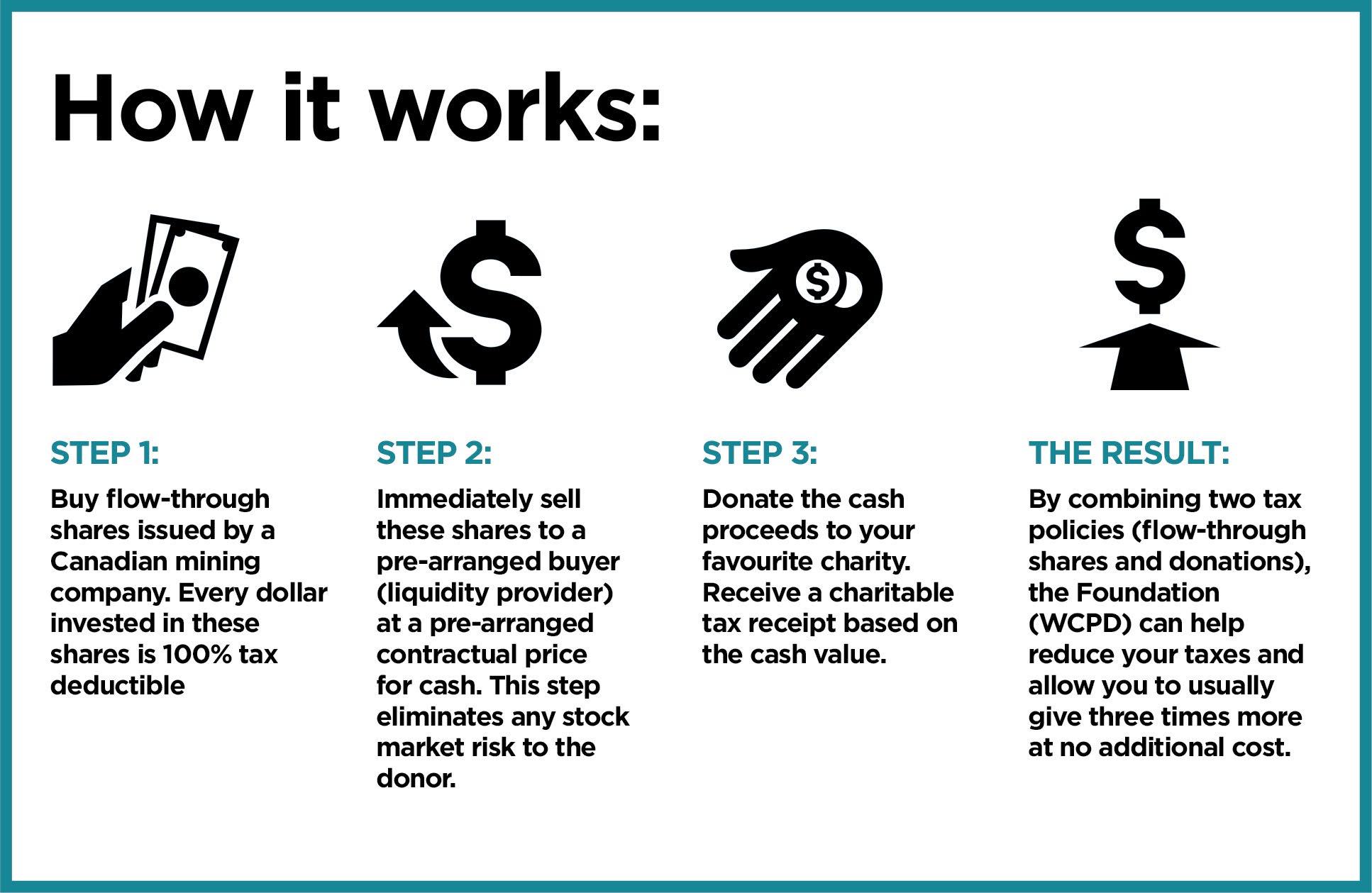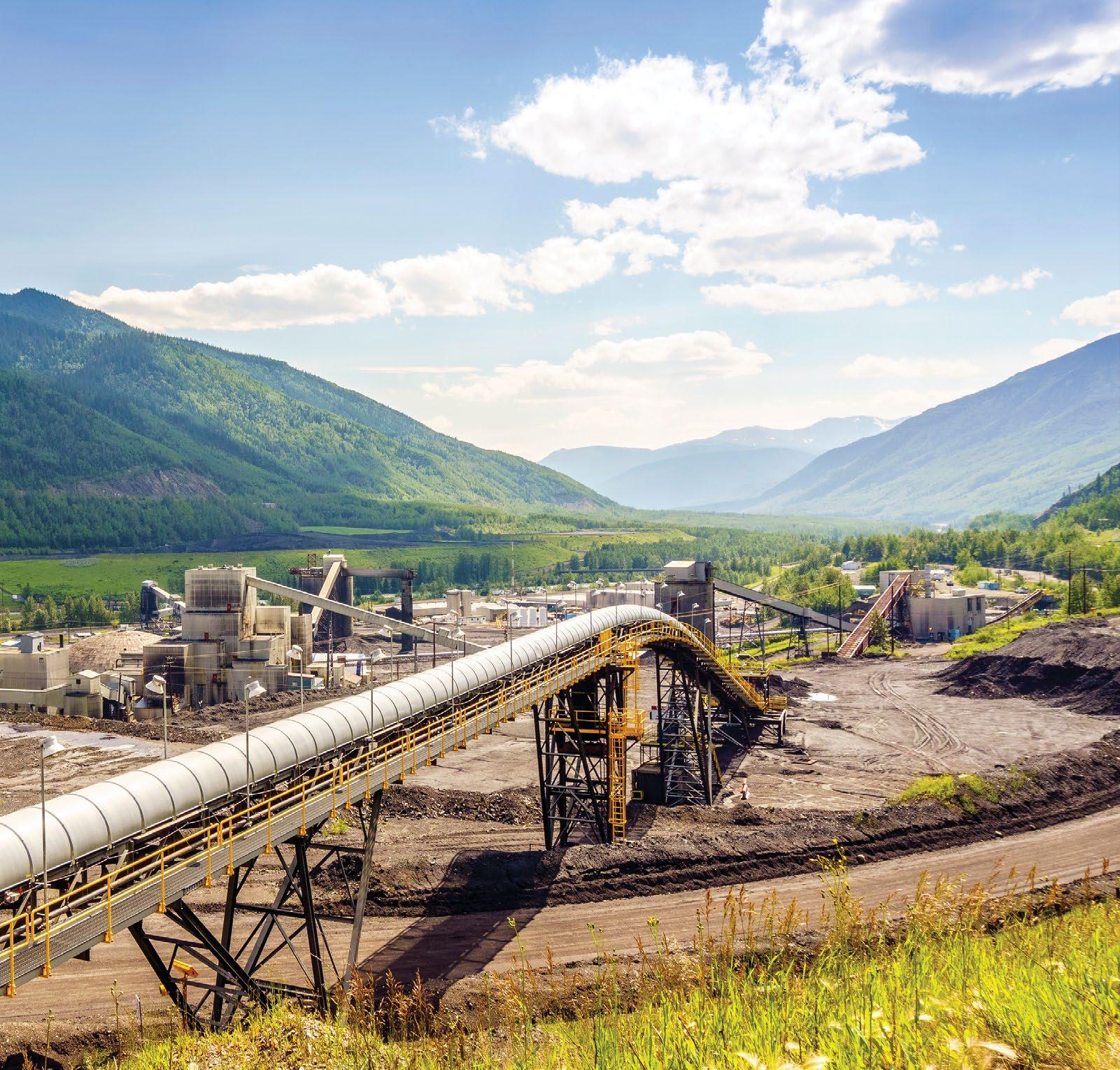
5 minute read
Why Were Flow-Through Shares a Focus in the Federal Election? Well, they Work
Doubling tax credits for critical minerals are a win-win for charities and our planet

BY PETER NICHOLSON
For most Canadians, the last federal election probably felt like more of the same.
Climate change, housing and affordability, and the COVID-19 pandemic continued to be common issues of the day. And when people woke up on September 21, the result — a Liberal minority — seemed to almost mirror what we had after the 2019 Federal Election.
There is one policy discussion, however, that received far more airtime than ever before — flow-through shares.
The subject itself is nothing new. This tax policy, older than your RRSP, has been around since 1954 to assist Canada’s resource sector. Flow-through shares provide seed capital to junior mining companies so they can explore for resources, and in return, you receive a 100 percent tax deduction.
Since May 2006, my firm has used this trusted, wellknown policy to help major donors give more to charities of their choice. Once flow-through shares are purchased by our donors, they don’t hold them for long — often less than a minute. The buyer can then sell their shares, at a


discount, to a third party, or liquidity provider, thus eliminating any stock market risk. The cash proceeds are then donated to charity, whereby the buyer receives a second 100 percent tax deduction. Combined, these two tax policies allow our clients, on average, to give up to three times more to charity, at no additional cost due to the tax efficiency.
When I speak with major donors, the tax incentives behind charitable giving are easy to grasp. We all know charities need our help. But mining? That topic is not as easily understood. But the truth is, there are equally good reasons why flow-through shares exist.
First off, Canada is a world leader in mining, accounting for more than $100 billion of our annual GDP, and producing over 700,000 direct and indirect jobs. Even better, it remains the number one employer of Indigenous Peoples. And if a deposit of gold, nickel, lithium, or another mineral is found? It results in billions in tax revenue for federal and provincial governments.
According to the National Hockey League, about 44 percent of players are Canadian. Did you know that 65 percent of all public mining companies are from the Great White North? While you might not think about it much, mining is even more Canadian than hockey.
Fortunately, the importance of flowthrough shares wasn’t lost among Liberals and Conservatives in this past election season.
Although they didn’t win the election, the Conservatives made headlines when they proposed a flow-through structure for technology. Just as flow-through shares support and encourage Canadian junior mining companies, party leader Erin O’Toole felt it could do the same to attract technological innovation and investment in Canada.
Put simply, flow-through shares are proven tool to help stimulate investment.
Meanwhile, the Liberals announced that they would eliminate flow-through

share tax deductions for oil and gas exploration — a move that I fully applaud. These energy sources are rapidly becoming a thing of the past, and in truth, already make up a tiny fraction of flow-through share transactions. According to the Liberal platform, this policy change would only save the government $25 million annually, while having obvious environmental benefits.
Critical minerals
Speaking of the environment: the second proposal by the Liberals is perhaps the most exciting.
In addition to the tax deduction on flow-through shares, the government has offered a 15 percent mineral exploration tax credit, or METC. But now, the Liberals have proposed doubling this tax credit to 30 percent for critical minerals, which are essential to creating renewable energy technologies such as batteries, solar panels and wind turbines.
If you’ve heard the term “critical minerals” a lot lately, you aren’t alone.
Computers, cell phones, medical equipment: they all depend on critical minerals, or the building blocks of products and services we depend on. In fact, the Canadian government has identified 31 minerals that are considered essential to our economy, national security and moving to green sources of energy, including nickel, copper, lithium, cobalt, uranium and many others.
Thankfully, Canada has many of these minerals in great abundance — we just need to find them, extract them and make the process efficient. According to Bloomberg’s 2020 clean energy rankings, for example, Canada ranks 4th in global lithium-ion battery supply chain. China, Japan and Korea made up the top three.
“The question is not whether we require minerals and metals to reach our climate goals, but rather if Canada will become the supplier the world needs,” said Pierre Gratton, CEO of The Mining Association of Canada.
These stark realities have caught the attention of not just Canada, but our allies.
Earlier this year, Australia, the United States and ourselves formally launched a landmark initiative — known as The Critical Minerals Mapping Initiative — aimed at researching and discovering critical minerals needed for the world of tomorrow.
These reasons and more are why the Liberals are doubling the METC credit for critical minerals, which is great news for our renewable energy future.
It is also great news for charities.
Yes, purchasing flow-through shares with an immediate liquidity provider is already the best way to maximize your gift. But when this increase in the METC comes into effect, those numbers look even better (30 percent tax credits plus 100 percent tax deduction, equals approximately the equivalent of 160 percent tax deduction).
So my message is clear: if you are a high earner, recently sold a business, or experienced a large capital gain, you can help Canada’s mining industry, while also giving to charities of your choice.
And the next time you pick up that cell phone, boot up your computer, or drive an electric car, consider this: the minerals inside may have done more than created jobs and made our planet cleaner.
They may have helped a Canadian registered charity.
For decades, PETER NICHOLSON has been a recognized leader in Canadian tax assisted investments, with a specialized focus on philanthropic tax planning and tax reduction. Through his work with countless donors, foundations and institutions and boards, he has helped generate in excess of $175 million for client donations. WCPD is Canada’s leader with over 500 closed charity flow-through offerings. To learn more about how we can assist your philanthropic goals, write peter.nicholson@wcpd.com




